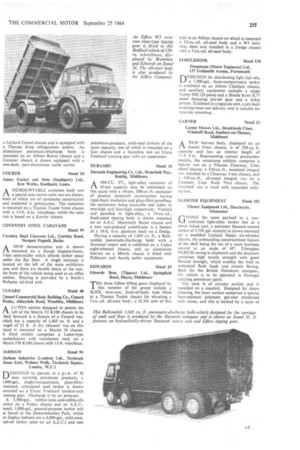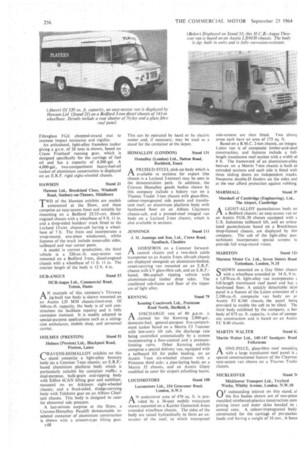GLOSTER EQUIPMENT Stand 102 Gloster Equipment Ltd., Hucclecote, Gloucester rlIVING
Page 259

Page 260

If you've noticed an error in this article please click here to report it so we can fix it.
the same payload as a con ventional light-alloy tanker but at a lower initial cost, a polyester filament-wound tanker of 3,750 gal. capacity is shown mounted on a modified Leyland Hippo six-wheeled chassis, the outstanding constructional feature of the shell being the use of a main laminate wound at an angle of 45°. Fibreglass FGRE20 roving is employed and the structure combines high tensile strength with good flexural strength, which enables the shell to withstand fluid loads and chassis flexing. Built for the British Petroleum company, the vehicle is to be operated in Portugal carrying petroleum spirit.
The tank is of circular section and is moulded on a mandrel. Designed for steam cleaning, the inner surface comprises a special heat-resistant polyester gel-coat reinforced with tissue, and this is backed by a layer of Fibreglass FGE chopped-strand mat to increase impact resistance and rigidity.
An articulated, light-alloy frameless tanker giving a g.t.w. of 28 tons is-shown, based on Crane Fruehauf running gear, which is designed specifically for the carriage of fuel oil and has a capacity of 4,500 gal. A 4,000-gal., two-compartment heavy-fuel-oil tanker of aluminium construction is displayed on an E.R.F. rigid eight-wheeled chassis.






































































































































































































































































































































































































